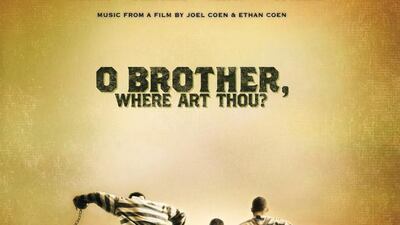The Harder They Come (1972)
What Saturday Night Fever did for disco, The Harder They Come did for reggae. Jamaican music was still limited to a niche circle of listeners in the United States, but this bold, brilliant soundtrack to the crime drama elevated reggae to the mainstream – where it has remained. The star of the compilation, as in the movie, is the fiery vocal presence of Jimmy Cliff. As well as the powerful title track, he also delivers majestic ballad Many Rivers to Cross and the sprightly You Can Get It if You Really Want. Augmented by guest appearances by other reggae legends such as The Maytals (later known as Toots & the Maytals) and Desmond Dekker, this is socially conscious reggae at its best.
Super Fly (1972)
The racially charged streets of 1970s' New York never sounded so seedy. Super Fly is a tour de force by Curtis Mayfield, showcasing his chops as a composer and R&B crooner. Where other blaxploitation film soundtracks celebrated street life, Mayfield took the opposite route, with tracks that spoke of repercussions and regret. The highlight is Freddie's Dead, a story of a hustler too weak to come to grips with his vices, with Mayfield unsparing as he details the title character's demise over a sea of dramatic strings and flutes.
Pulp Fiction (1994)
Much of the thrill of Quentin Tarantino films comes from how his soundtracks often reflect the absurdity he plunges his characters into. Each track from Pulp Fiction immediately takes you to the scene in question: from the opening diner robbery set to the sound of Dick Dale's Misirlou to John Travolta and Uma Thurman twisting away in a restaurant to Chuck Berry's You Never Can Tell.
___________________________
READ MORE:
Soundtrack to our lives: the powerful role of music in films
UAE super-group Abri & the Dreamfleet take flight with debut single
Douzi takes a Bollywood track for a spin
Listen: Five 2017 world music albums to check out
___________________________
Trainspotting (1996)
Given that Trainspotting was based on the biggest literary hit of the UK's indie scene, it was only right that mostly British indie artists were chosen to provide the songs for the soundtrack. It features a who's who of 1990s English greats, including Blur, Pulp, Leftfield and Underworld. A few veterans also contribute, including Iggy Pop, whose Lust for Life is used for the film's opening scene, and Lou Reed's beautifully understated Perfect Day. It is a soundtrack that accurately captured the film and novel's spirit.
O Brother, Where Art Thou? (2000)
Never has one album done so much for roots music than the soundtrack to the Coen Brothers' Oscar-nominated film O Brother, Where Art Thou? It is an expansive collection of gospel, folk and country, featuring a 1928 recording of Harry McClintock's Big Rock Candy Mountain, plus modern versions of traditional hymns, such as Alison Krauss's Down to the River to Pray. The star, though, proved to be singer-songwriter Dan Tyminski, whose Grammy-winning turn leading the Soggy Bottom Boys on I Am a Man of Constant Sorrow launched his career.


